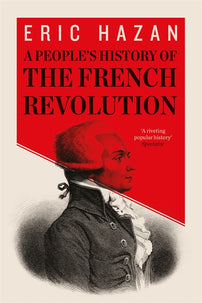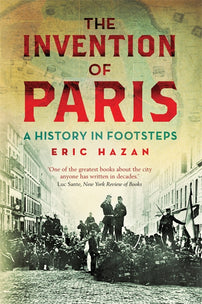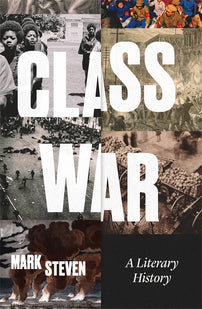Literature of the Revolution
The author Hilary Mantel, who died on the 22nd September at the age of 70, is best remembered as the celebrated author of the Wolf Hall trilogy that follows the rise to power of Thomas Cromwell in the court of Henry VIII. In this interview with John Rees and Paul McGarr, originally published after the release of her great historical novel about the French Revolution A Place of Greater Safety in 1992, she discusses her early political formation on the left, and the relationship between politics and literature.

You’ve said that when you started thinking about this book 18 years ago you felt that you couldn’t understand anything about society unless you understood revolution. What gave you that feeling?
In my mid-teens I developed an obsessional interest in revolutions. I thought of this as a political stance, although when I look back on it now I realise that the idea of the ‘world turned upside down’ was attractive to me because I was miserable and I wanted the world to be difference and I wanted to be in charge of myself.
It was a typical teenage feeling, although it was also the point in my life when I started reading Marx. I’ve forgotten the theory now and, because I didn’t have anyone to guide me, I’m not sure I understood it in the first place.
I remained very interested in left wing politics, but I became disillusioned because at university I’d got involved in Labour student politics and I sat through endless meeting where nothing was decided. I was shocked that all people talked about was where they were going to have their next committee meeting. About then, when I was 22, I decided I would take a more contemplative interest in politics.
That was when I started reading seriously about the revolution, although it didn’t really occur to me at first that I was going to write a novel. I had no idea how to do research. I just accreted facts and then, at a certain point, it became clear I was going to write a novel. As I gathered information I began to write it down in dialogue, which is where the book really started.
I wanted to write a novel that was within the political framework and took certain things as given. So I stuck with real people and I became very interested in the three particular people who are the centre of the book: Danton, Robespierre and Camille Desmoulins, who forms a bridge between the first two in their personal lives and who therefore became a hinge of the book.
Why did you choose to make Desmoulins the centre of the novel?
He’s such a gift as a character, very entertaining. He wrote a lot and so you have a good idea of what’s going on. And because he’d had a childhood friendship with Robespierre and, later, a close friendship with Danton, I wondered how he managed it. How did he go from the company of one of these men to the other and keep his sanity? He seems a very manipulative character – ideal to put at the centre of a novel because they move all the other characters around them.
It's true, as you’ve said, that with Desmoulins you can’t fail to enjoy the revolution a little bit. But he also had serious ideas, as his writings show.
Yes, he was an idealist. But in every character there is a mixture of idealism and opportunism and in each of these three men I was trying to account for how idealism, opportunism and personal ambition were combined and how, at certain points in their lives, one or the other would come to the fore.
I wanted to dramatize the political process. But I also wanted to explore this question of how much people’s politics were a product of their psychology and their personal circumstances. I don’t have an answer to that, but I think it’s one of the more interesting questions.
As I said about myself, I thought I was one of nature’s radicals but I was probably just an unhappy child. However, an unhappy child turns into something.
[book-strip index="1" style="buy"]People often become radical when they realise that their personal happiness is caught up with their wider circumstances.
That is what is so interesting about Robespierre. To understand him you have to look at him as almost a religious leader because what he wanted was less a transformation in people’s external circumstances than a transformation in their hearts
He wanted a society in which people’s happiness would not simply lie in the comfort of their personal lives but in working for the community, a revolution in human heart very different from anything Danton had in mind.
But isn’t it part of the definition of a great revolutiuonary that they see that, as Marx put it, the greatest conquest of the class struggle is the spiritual growth of the oppressed? Certainly Cromwell and Milton had an intense belief in the spititual transformation necessary for a successful revolution.
Yes, and I suppose that’s why I see Robespierre as a revolutionary and Danton as a chancer. My ideas about them changed in the course of the book. When I started off I was, like almost everyone, pro-Danton and anti-Robespierre. But, as I worked on it, I became more sympathetic to Robespierre and more interested in him as a person.
I grew to respect his ideas, but that was probably at too late a point for the general reader. If I were beginning again I’d quite deliberately build in a lot of bias in Robespierre’s favour. Especially in Britain he’s this monster figure so you have to positively discriminate in his favour.
It’s difficult writing about the revolution for an English audience because you have to chuck out all the misconceptions and prejudices before you can even begin. That’s one of the reasons why I decided to take the characters from their childhoods. I thought if you meet these people at the age of six then surely you can’t entertain prejudices against them.
The Marxist critic George Lukacs makes the point that it is more difficult to represent both the moving forces of a revolution and the psychology of individuals if you concentrate on great historical figures rather than unknown figures at the bottom of society.
I appreciate the point. If you choose a figure at the fringe of events they can then act as a mirror to events for the reader in a way that my characters can’t, but one of the reasons that I chose them was that I was interested in the nature of ambition and therefore second-rankers wouldn’t do.
[book-strip index="2" style="buy"]Another striking thing about the novel is that you’ve chosen to have a strong domestic focus. Much of the action takes place in family homes.
One reviewer said I’d taken household names and put them back in the households from which they came. I was trying to make a whole person and I think a novelist begins to earn her money where the evidence runs out.
When I wrote the first version of the book in the 1970s I identified very much with the male characters, but when I came to look at the novel again last summer I read it and thought that there was a dimension about the women missing.
I don’t want to think that I just did that because it is now more ‘politically correct’ and fashionable to write about women’s lives, but because I myself was a different person. I’d done a lot of growing up. It made a stronger book, not just because it did something for the female characters, but because it made the male characters more fully human as well.
When you look now at British society how far do you feel a kind of decay around you similar to France before the revolution?
Not everyone sees the last years of the old regime before the revolution in that way. Simon Schama, who wrote the best selling Citizens, for instance, rather believes that there need not have been a revolution.
But my job as a novelist wasn’t to arbitrate. I didn’t have to decide on that. All I had to ask myself was: if I had been one of my characters, standing where I was, say about the year 1780, how would it have looked to me? And I think to me it would have looked ripe for revolution.
I’m sometimes beset living in Britain today with an appalling sense of waste and futility. I don’t know though that necessarily it’s going anywhere. I like to think that I haven’t become cynical over the years. But I think I have begun to feel that actually for most people what they’re interested in is the easiest possible life.
I don’t see that as being an adequate motive for a revolution in society. I’m afraid what I see is more of the same, good times, bad times.
I’m fairly pessimistic at the moment. But I find at the same time that we’re in the middle of an intractable muddle. I feel it very difficult to say anything about the direction in which society is proceeding.
You can say, well, I sit on the fence and watch and I’m always very wary of committing myself for that reason to the kind of political causes that novelists take up because as somebody in the book says ‘I just go issue by issue’ and I suppose that’s where I am at the moment.
Yet your novel doesn’t ‘sit on the fence’. The feeling you get from the novel is that the revolution was generally a good thing. It doesn’t treat characters who are for the revolution the same as those who are against it.
It’s the product of a radical sensibility, if you like, because if the person who had written it were temperamentally conservative it would have come out very different. And it would have been about a different bunch of people.
We’re constantly being told that the reign of terror during the revolution was one of the most dreadful things that happened in the world and that revolution is the fount of all corruption. And I still in my heart agree with what I think Charles James Fox said that the revolution was ‘the most surprising thing that happened in the world and now much the best'.
I see the French Revolution as very much the foundation of the modern world and I do see it as something very positive. As for the reign of terror, as Orwell said, compared to one of Napoleon’s battles it was a joke.
[book-strip index="3" style="buy"]Was it a conscious choice to essentially leave out characters from the sans culottes movement, the movement from below? At times you get the sense of the revolution moving forward but it’s largely dependent on the dynamics at the top. There was enormous pressure from the war and counter-revolution on the one side and the movement from below on the other.
It was conscious. What the sans culottes wanted was cheap food essentially. And because of that they wanted price controls. Price controls were against the interests of the peasantry. I really see the sans culottes and their leaders like Jacques Roux as an interest group within this great combination of interest groups.
I would like to have written more about them just as in a way I would have liked to have written about the revolutionary women’s clubs. But again in a novel if you’re not to strain its powers beyond bearing you have to say: I have decided on these main characters, for better or worse, who are they, who do they see?
You can’t write a novel about social and economic forces. This is the bottom line really. Then you have to ask yourself if it's worth doing from a political point of view. I think yes, because it’s interesting to see if you can dramatize the political process and then at least you’re putting it there for people to think about. I think that’s all you can hope for, to get them to think.
At one point in the book you say that you’re thinking of writing something about another of the revolutionaries, Jean Paul Marat.
Most of my characters were very young when the revolution began. Marat was much older and he fascinates me because although his career is hard to trace he does in earlier years seem to keep popping up in different points in Europe. I think if I did write a book about Marat it would be titled The Excursion.
It would have its beginning point in revolutionary Paris a few days before Marat’s death, his assassination in 1793. There would be ten excursions into his past, then because it took his assassin Charlotte Corday ten days to get to Paris from Normandy.
Marat was reviled wherever he appeared. And it seems to me he made himself into such a revolting person you can’t help feeling that he was laughing at people really.
To go back to what you were saying before: there’s not such a gap as you suggest between people feeling materially and spiritually deprived.
I think what I was saying was that there was a point in my life at which I thought that people would progress to a kind of society, just as I think Robespierre did, where satisfaction lay not in individual achievement or what an individual had got for themselves but in working for the common god.
As I grew older that belief drained away from me, to be replaced by nothing much. Obviously it didn’t drain away from Robespierre.
Originally published in the Socialist Review in 1993.



